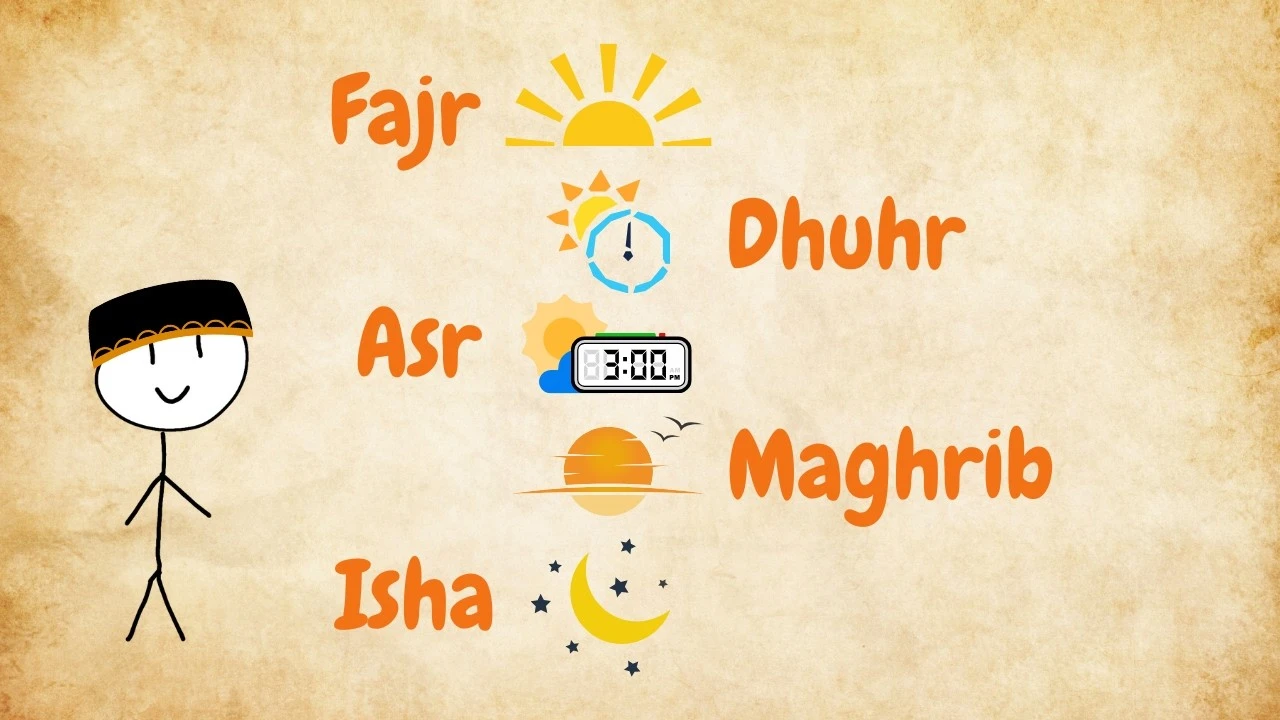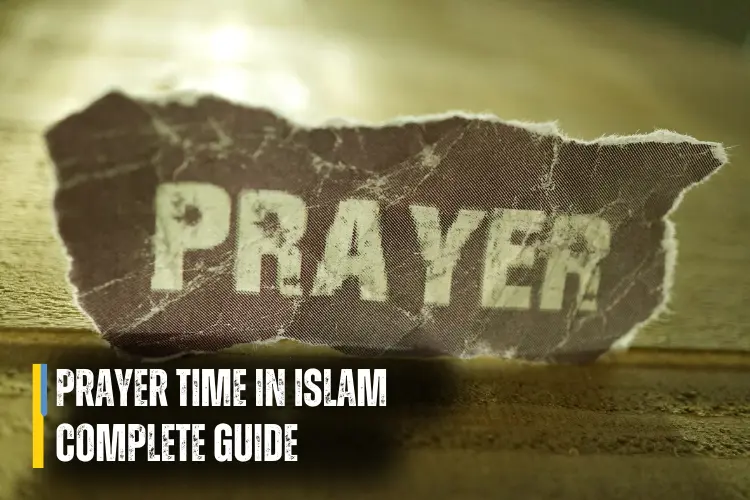The 5 Daily Prayers in Islam: Times & Benefits

Have you ever wondered why Muslims take breaks throughout the day to pray? No, it’s not just an elaborate way to avoid work. Muslims pray five times a day because it’s an essential part of their faith—a way to reset, reconnect, and refocus. Think of it as five spiritual pit stops that keep life running smoothly. But why five? And what’s so special about each prayer? Let’s break it down one prayer at a time.
Table of Contents
Fajr – Dawn Prayer: The Early Bird Special
Time: Before sunrise
Required Units: Two
Fajr is the first prayer of the day, and yes, it requires waking up before the sun. It’s the ultimate test of willpower because, let’s be real, your bed is extra comfy at this hour. But this prayer is about starting your day with a clean slate, asking for guidance, and setting the tone for everything ahead.
Why Pray Fajr?
It’s like having a morning meeting with God before anyone else wakes up. It helps you resist the snooze button of life—literally and spiritually. The Prophet Muhammad (peace be upon him) said, “Whoever prays Fajr is under the protection of Allah.” Now that’s better security than a home alarm system!
What Are the Rewards?
Huge blessings, a fresh start to the day, and you get to witness the most peaceful part of the morning—which, let’s be honest, most people sleep through.
Dhuhr – Noon Prayer: The Lunch Break for the Soul
Time: After the sun passes its highest point (midday)
Required Units: Four
Dhuhr comes at a time when you’re deep into your day—whether it’s work, school, or scrolling endlessly on your phone. It’s a reminder to pause, breathe, and realign your focus. Think of it as a midday recharge—like a power nap but with prayers.
Why Pray Dhuhr?
It helps break up the daily grind and encourages mindfulness before that post-lunch food coma kicks in. It’s a reminder that even in the middle of a busy day, we need to prioritize faith.
What Are the Rewards?
Increased productivity, peace, and calmness before tackling the rest of the day. A chance to reflect on how the first half of your day went and fix things if needed.
Asr – Afternoon Prayer: The Late Afternoon Pick-Me-Up
Time: Late afternoon, before sunset
Required Units: Four
Asr is like the afternoon coffee of prayers—it wakes you up when you start feeling sluggish. It’s also a moment to check in: Are you still on track with your goals for the day, or did social media win again? This prayer reminds you that there’s still time to turn things around.
Why Pray Asr?
In Sahih Muslim 626, the Messenger of Allah (peace be upon him) said, “Whoever misses the afternoon prayer, it is as if he had lost his family and his property.” It keeps your momentum going so you don’t just mentally check out before the day is even over. It’s a spiritual boost before sunset.
What Are the Rewards?
A second chance at productivity before the day ends, protection from distractions and temptations, and strengthened discipline—because pushing through afternoon laziness is a skill.
Maghrib – Sunset Prayer: The Dinner Bell for the Soul
Time: Just after sunset
Required Units: Three
Maghrib is the prayer that signals the end of the day, kind of like a spiritual clock-out. For those fasting, this is when you finally get to break your fast. But even when it’s not Ramadan, Maghrib is a moment of gratitude, reflection, and unwinding after a long day.
Why Pray Maghrib?
It’s the perfect time to reflect—what went well today? What could have been better? Maghrib symbolizes the transition from day to night, reminding believers of the fleeting nature of time.
What Are the Rewards?
A chance to ask for forgiveness for anything that didn’t go right during the day, a peaceful evening knowing you fulfilled an important act of worship. In Sahih Muslim 669, the Prophet Muhammad (peace be upon him) said, “Whoever goes to the mosque at dawn or dusk, Allah will prepare for his residence in Paradise for every morning and evening.”
Isha – Night Prayer: The Spiritual Nightcap
Time: After twilight disappears (late evening)
Required Units: Four
Isha is the last prayer of the day, and it’s basically like tucking your soul into bed. It’s your final conversation with Allah before you sleep—a way to close your day on a peaceful note. Plus, it prepares you for a fresh start the next day.
Why Pray Isha?
It wipes away any leftover stress from the day. It helps you sleep better—seriously, try it. It ensures your last act of the day is one of worship.
What Are the Rewards?
The Prophet (peace be upon him) said, “Praying Isha and Fajr is like praying the whole night.” That’s a spiritual life hack! It strengthens faith and consistency and gives you a sense of completion—like closing all your tabs before shutting down your computer.
Cool Facts About the Five Daily Prayers
- The Five Prayers Were a Gift, Not a Command
Did you know that Muslims didn’t always pray five times a day? Originally, it was supposed to be 50! Yes, 5-0! But during the miraculous Night Journey (Isra and Mi’raj), the Prophet Muhammad (peace be upon him) asked Allah to reduce it, and it was brought down to just five. Talk about the ultimate discount! - Fajr and Isha Are the Hardest But Most Rewarding
The Prophet (peace be upon him) said that Fajr and Isha prayers are the most difficult for hypocrites. Why? Because they require real commitment—one at the crack of dawn and one when you’re ready to collapse into bed. But guess what? They also have huge rewards. Praying Fajr and Isha in congregation is like praying the entire night. - The Earth Is Your Prayer Mat
One of the coolest things about Islam? You don’t need a temple, church, or special building to pray. The Prophet (peace be upon him) said, “The whole earth is a place of worship, except bathrooms and graveyards.” So whether you’re at home, at work, or even at the beach—prayer is just a few steps away. - Sujud (Prostration) Is the Closest You Get to Allah
Want to be as close to Allah as possible? Go into sujud! In Sahih Muslim 482, the Prophet (peace be upon him) said that during prostration, you are at your closest point to your Creator. So don’t rush it—take your time, make a dua, and enjoy the moment.
Whether it’s dawn, midday, afternoon, evening, or night—prayer keeps faith at the center of it all. And trust me, once you get into the habit, missing a prayer feels like missing your coffee—something just feels off!
May your days be filled with peace, purpose, and perfectly timed prayers. Until next time—Assalamu Alaikum!





